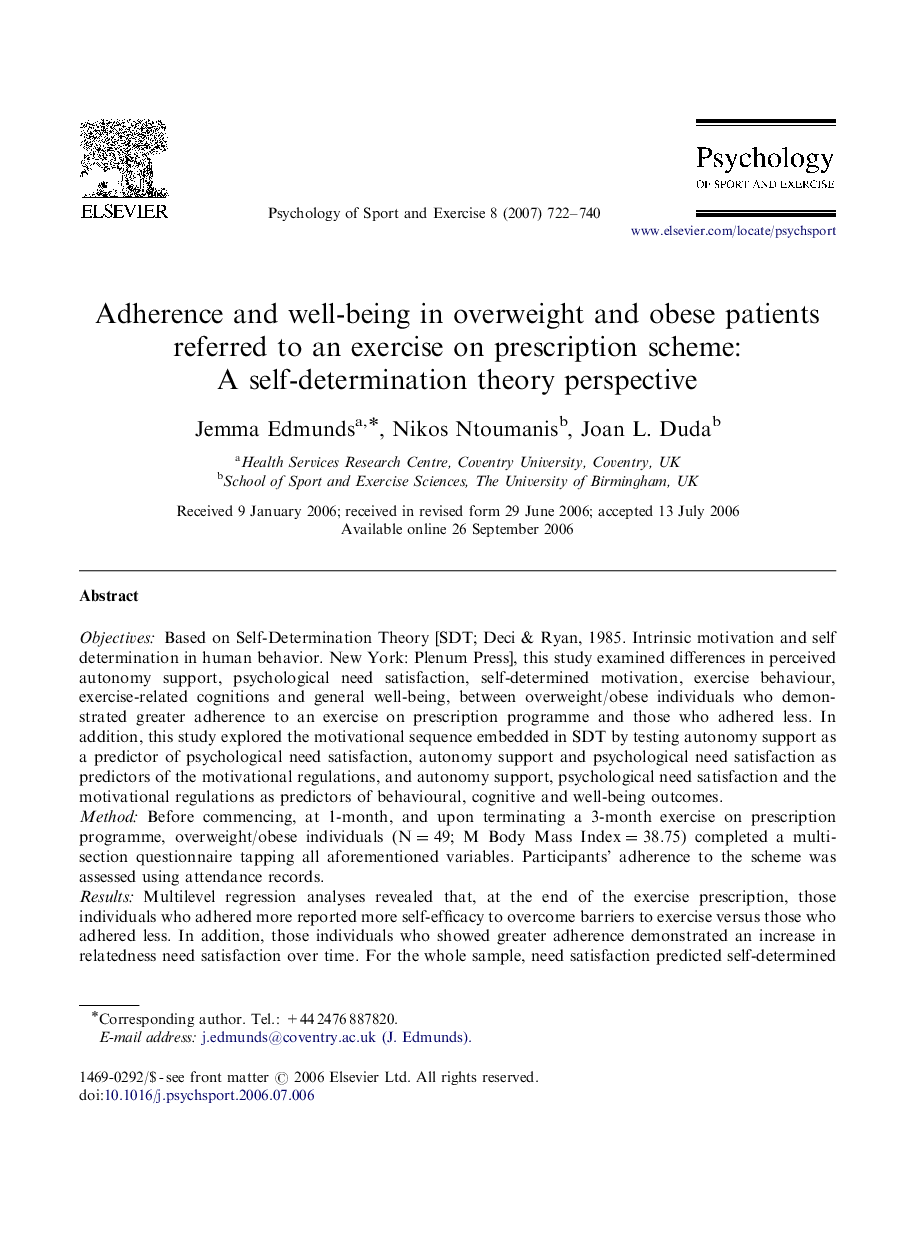| Article ID | Journal | Published Year | Pages | File Type |
|---|---|---|---|---|
| 894883 | Psychology of Sport and Exercise | 2007 | 19 Pages |
ObjectivesBased on Self-Determination Theory [SDT; Deci & Ryan, 1985. Intrinsic motivation and self determination in human behavior. New York: Plenum Press], this study examined differences in perceived autonomy support, psychological need satisfaction, self-determined motivation, exercise behaviour, exercise-related cognitions and general well-being, between overweight/obese individuals who demonstrated greater adherence to an exercise on prescription programme and those who adhered less. In addition, this study explored the motivational sequence embedded in SDT by testing autonomy support as a predictor of psychological need satisfaction, autonomy support and psychological need satisfaction as predictors of the motivational regulations, and autonomy support, psychological need satisfaction and the motivational regulations as predictors of behavioural, cognitive and well-being outcomes.MethodBefore commencing, at 1-month, and upon terminating a 3-month exercise on prescription programme, overweight/obese individuals (N=49; M Body Mass Index=38.75) completed a multi-section questionnaire tapping all aforementioned variables. Participants’ adherence to the scheme was assessed using attendance records.ResultsMultilevel regression analyses revealed that, at the end of the exercise prescription, those individuals who adhered more reported more self-efficacy to overcome barriers to exercise versus those who adhered less. In addition, those individuals who showed greater adherence demonstrated an increase in relatedness need satisfaction over time. For the whole sample, need satisfaction predicted self-determined regulation, and collectively, these constructs corresponded to adaptive exercise related outcomes and general well-being throughout the programme.ConclusionsBased on the results it appears that exercise on prescription schemes would benefit from creating services that foster self-determination via the facilitation of psychological need satisfaction.
